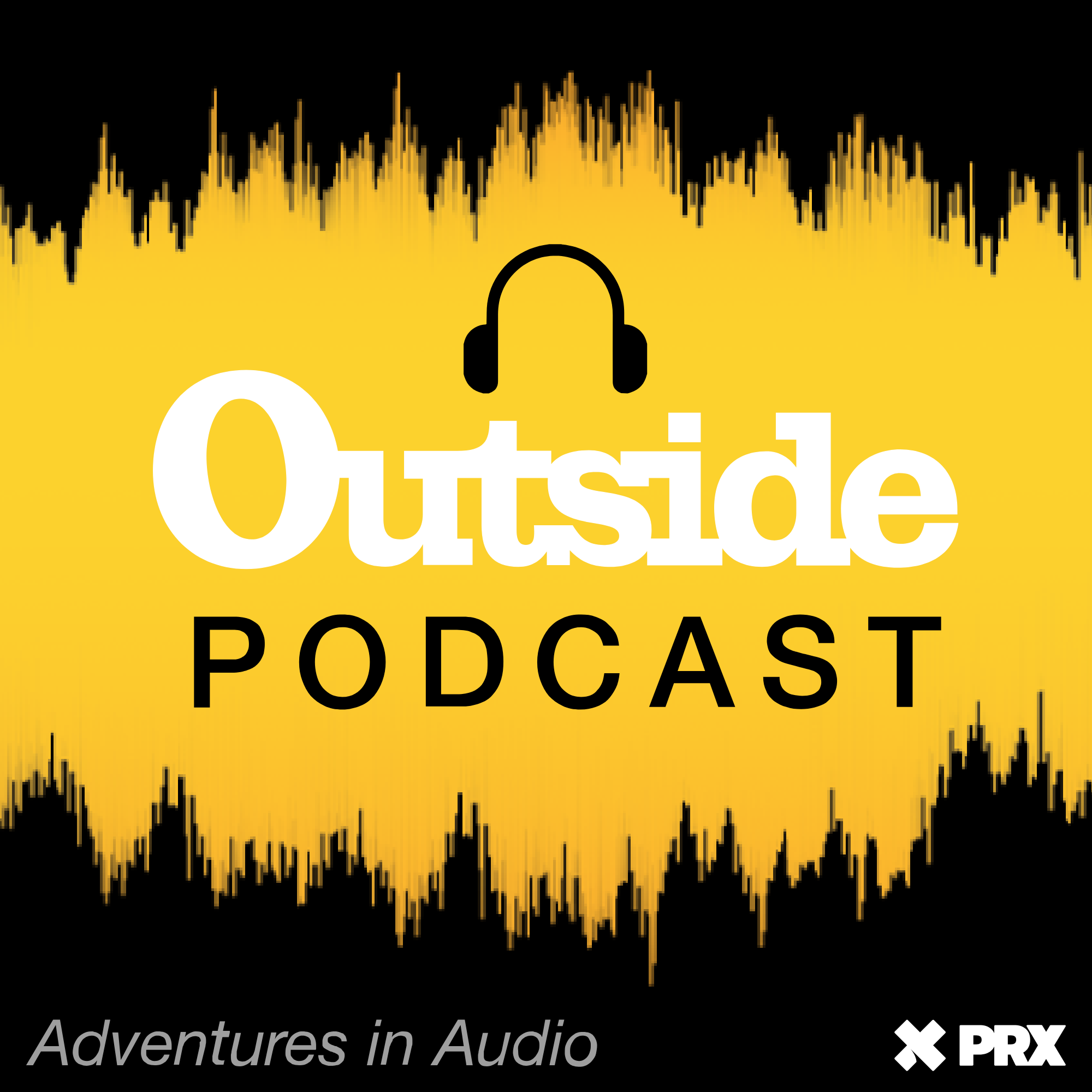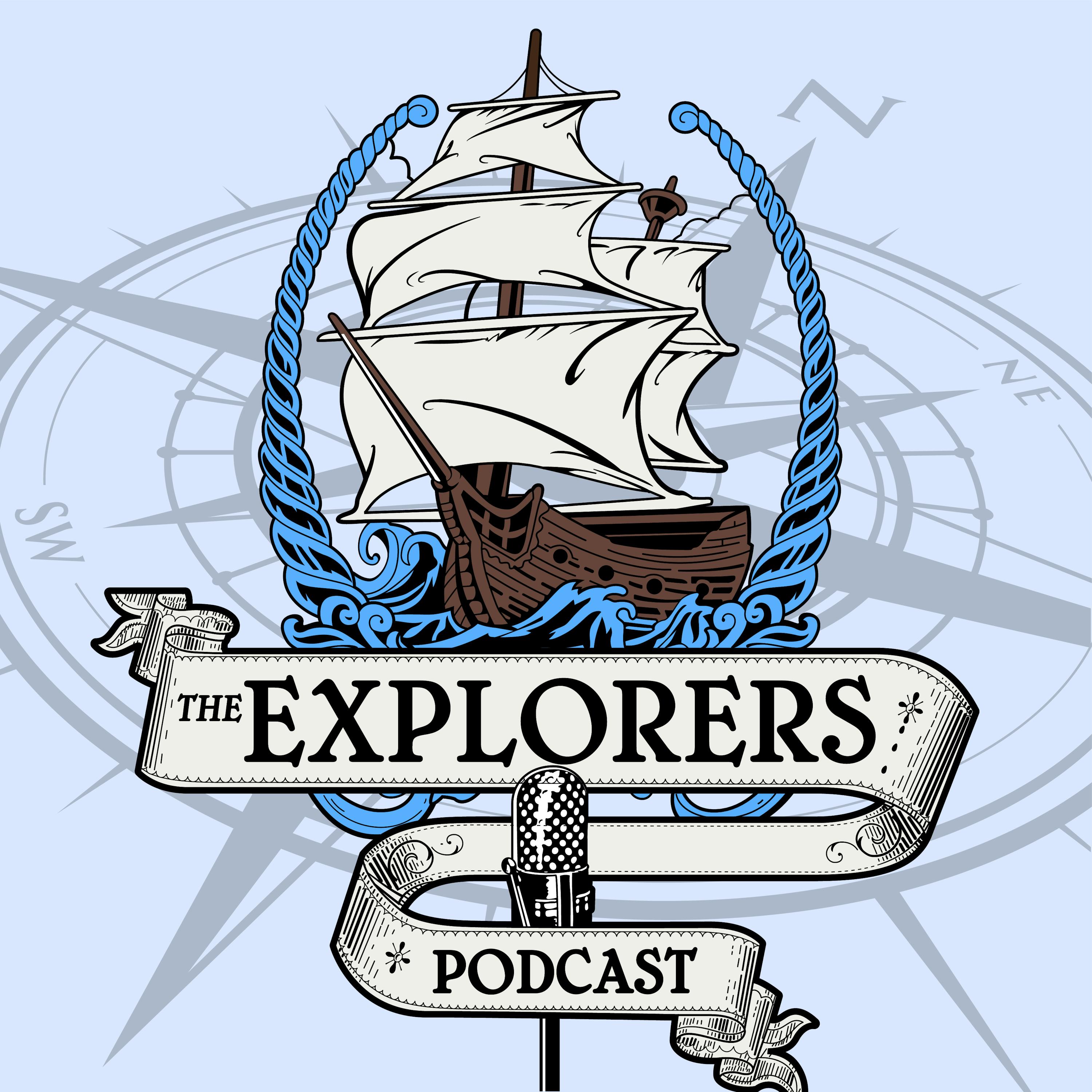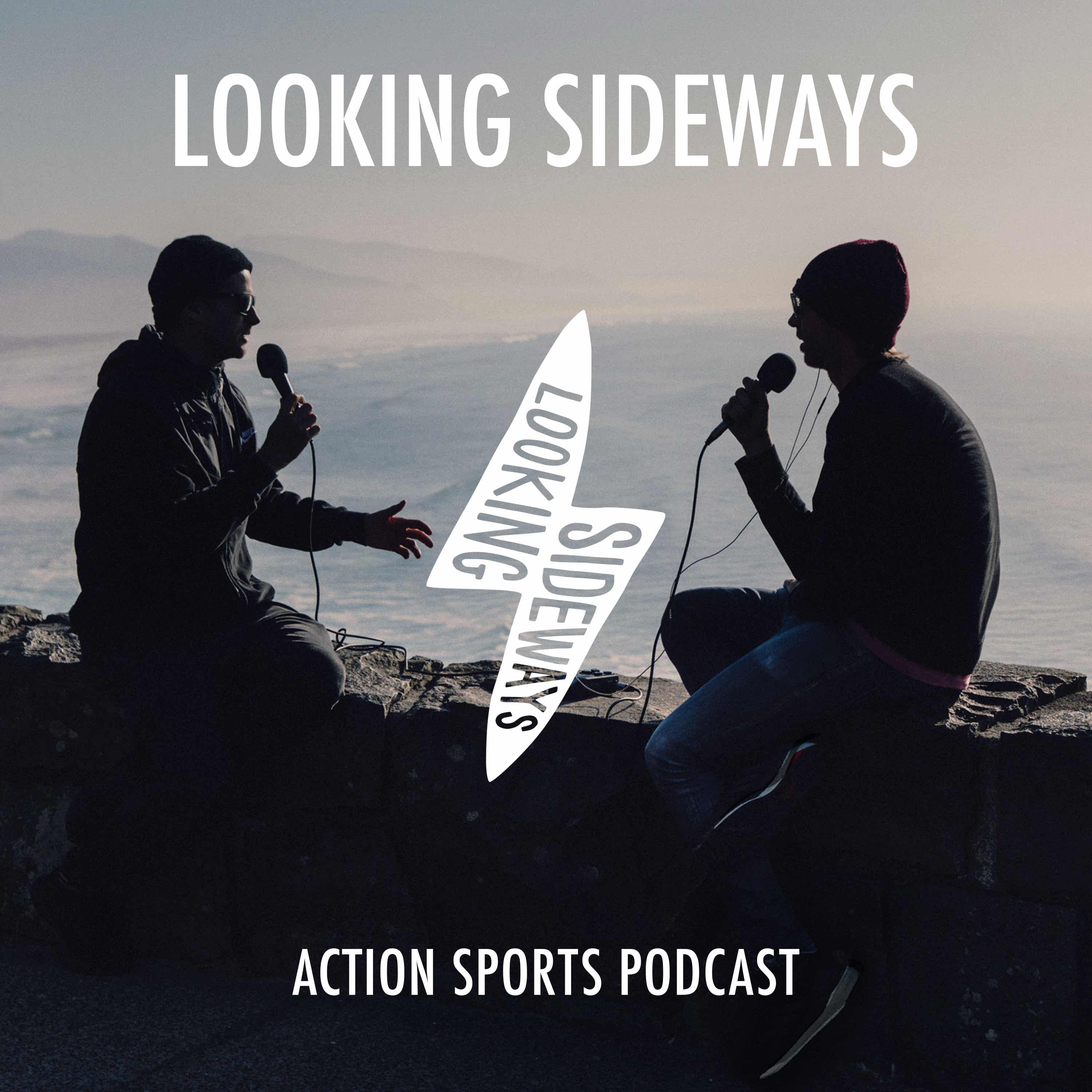
Adventure Diaries
Welcome To The Adventure Diaries Podcast.
Authentic Stories of Adventure, Exploration & The Natural World. To Inspire Your Next Adventure, Big or Small.
An inspiring Podcast for Adventurers, Explorers, Outdoors People and those curious about the natural world.
From the extremes of polar expeditions, intense deserts, humid jungles, ocean depths, the summits of the world to the everyman or women's everyday local adventures.
There is something for every adventurer and outdoor enthusiast on this show.
Be inspired and become a part of a global community of like minded explorers, adventurers and those curious about the natural world.
Every Episode Delivers on 3 promises:
· Captivating Story or Experience
· Call to Adventure - From our guest to you!
· Pay It Forward - A worthy cause or project, from our guest to you
If you want adventure stories, inspiration and the opportunity to connect and give back then please give us a listen AND a follow.
And If you enjoyed any of our episodes please leave a written review.
MORE HERE: https://linktr.ee/adventurediaries for updates.
Have a topic suggestion? Email us at ideas@adventurediaries.com.
Https://AdventureDiaries.com
#Adventure #explore #wilderness #Outdoors #Wildlife #Nature #Conservation #outdoorpodcast
Adventure Diaries
Tim Santel (Recap): Wildlife Focused Conservation & Adventure in Nepal
Please click here to 'Follow' the show - it really helps get the show to a wider audience (which I really thank you for!).
🚨 Don't FORGET to Join the Adventure Newsletter Here 🚨😎
It will bring more people, greater stories and more adventures for everyone.
Adventure Diaries S2 Episode 134 Recap; Host Chris Watson sits down with Timothy Santel , a retired investigator turned passionate conservationist. Tim shares captivating stories from his 32-year career, where he transitioned from law enforcement to wildlife protection. The episode delves into Tim’s dedication to mentoring the next generation of conservationists, his remarkable experiences in Nepal’s Chitwan National Park, and his ongoing work with Focus Conservation—a nonprofit organization fighting wildlife trafficking in Africa.
Key Takeaways:
- Mentorship Matters: Tim emphasizes the importance of paying it forward. He shares how his mentors shaped his career and why he continues to guide and support emerging conservationists through his work with Focus Conservation.
- Adventure in Nepal: Tim recounts his incredible journey to Chitwan National Park, where he encountered rare species like the one-horned rhino and sloth bears. His story highlights the beauty and biodiversity of Nepal, making it a must-visit destination for wildlife enthusiasts.
- Wildlife Protection: Tim discusses his role at Focus Conservation, a unique nonprofit composed of former law enforcement professionals. The organization works with African countries to combat wildlife trafficking and rehabilitate animals like baby gorillas and chimpanzees.
- Conservation Challenges: Tim sheds light on the harsh realities of wildlife trafficking, sharing a poignant story about a baby gorilla rescued from poachers. He explains the crucial role that organizations like Focus Conservation play in protecting endangered species and preserving their habitats.
Quotes from the Episode:
- “If you’ve got a skill and you’ve got experience, help somebody that might need a hand.”
- “Nepal would be a place that I would recommend... It’s home to some of the coolest and most diverse species in the world.”
- “We’re all cops... Our group works with countries in Africa to help them build crime units and mentor those crime units.”
- “What a cool story it would be to reintroduce [a rescued baby gorilla] back to his family.”
Call to Action:
- Visit Focus Conservation: Learn more about the vital work being done by Tim and his colleagues by visiting Focus Conservation. You can also follow them on Facebook, Instagram, LinkedIn, and Twitter.
- Support Wildlife Protection: Consider supporting organizations dedicated to wildlife conservation and mentoring future conservationists.
- Explore Nepal: If you’re seeking adventure, look into visiting Chitwan National Park in Nepal to witness the incredible wildlife and immerse yourself in local c
Thanks For Listening.
If you enjoyed this episode, please leave a comment and subscribe for more exciting content.
Follow us https://linktr.ee/adventurediaries for updates.
Have a topic suggestion? Email us at ideas@adventurediaries.com.
AdventureDiaries.com
#AdventureDiaries #AdventureStories #NationalGeographic #Discovery #NaturalWorld
I've got two closing traditions on the show as we're coming up to the end one of which is a paid forward suggestion for you to raise awareness for a good cause, charity or project, and the other is a call to adventure. So for a paid forward suggestion, what would you recommend to the listeners?
Someone like myself I was lucky. I had a lot of really good mentors that showed me how to do things. And paying it forward, I retired after a very good career won a lot of, accolades and I could have just left and gone to the sunset, but I feel that I think I owe it to the next generation behind me to try to help and like some of the older agents did for me and they took me under their wing.
And so I still, to this day, like I said I work for a nonprofit called Focus Conservation. I participate in training, instead of enjoying the retirement life I'm still working on courses and curriculums and interviews and doing those sorts of things to try to get the word out.
About, wildlife and wildlife trafficking. So I would encourage people to to pay it forward like that. If you've got a skill and you've got experience, help somebody that that is looking, might need a hand. There might the next Marlon Perkins or the, next Jane Goodall or any of those they may be just waiting in the wings, needing somebody to give 'em some guidance and help and take the time.
To help those that are really that really care about it. And so that would be my suggestion for paying it forward is it'll just right off in the sunset. If if you're still relevant and have the ability to try to help somebody, as far as an adventure. Oh, my, that's a loaded question, but the 1st thing that pops up in the mind, of course, my love of animals and I would probably say This was probably one of the most recent ones is when I was teaching officers in Nepal last year after the training was over with, I got on a flight from Kathmandu and I flew to on the outskirts of Chitwan National Park.
And I would. Highly encourage people to consider going to Chitwan National Park. It's the very 1st National Park in Nepal. It's home to some of the coolest and most diverse species in the world. The 1 horn rhino. I saw, I think when I was there, I think I saw six of them three mothers in there and calves.
I saw a sloth bear they're home to the tiger Gario Muntjac crested eagles. I saw langurs. I saw so many cool things, but I would, what I did, if I was to recommend somebody and somebody say, hey, I want to go to Chitwan, how do I would not, maybe I would probably, I stayed on the outskirts in a little small village and I actually interacted with the locals.
One, one cool little kind of side story is, and I don't know, understand. I certainly didn't understand all the traditions and what was actually going on and didn't know the language, but I remember we were driving in a vehicle and some little kids pulled a rope across the road. And they refused to let us cross until we made some small donation or something, but then they came with a plate and they had pressed flowers and they make a an ink and there's been and I really, I don't want to mean any disrespect because I don't know the tradition behind it, but after we interacted with these kids, they came and they put the a mark on our foreheads.
for that day. And I was proud to wear the, because I was part of some tradition that I wasn't familiar with. But you immerse yourself with the locals and get to learn. And then when you go to chip one, like I said, and get to see some of these incredible animals, that would be my goat.
One of my Highly recommended go to adventures. And if you're in the trekking, of course, you got a lot of trekking. You could do right there in Nepal on the outskirts of Kathmandu. So Nepal would be a place that I would recommend. Fantastic.
That's excellent. That's excellent. I'm going to go and have a little look at that afterwards on YouTube.
Excellent. Thank you, Tim. That's been fantastic. I've thoroughly enjoyed this conversation. It's been very enlightening and, thank you for all the work you've been doing. It's it's fantastic. It's 32 years full of Adventure and impact quite frankly, it's incredible.
Why I just thanks for your interest and and hearing a little bit about, and it's just not me. There's a lot of people just like me. Like I said, there were some. Some older agents when I stepped in the academy, and they gave their talks and I was inspired by them. In fact, 1 of my wrote.
What he said that day back in 1992, I wrote in a. I wrote down and I still, live by it today, but it was basically, when an animal dies, it doesn't make a sound and we're the only voice that has. And that was a comment that he made. That's has stuck with me over the last 30 something years is you've got to be the voice for these animals.
They can't no one's listening to them. So it takes people like you and I and others to to make sure we We speak on their behalf.
Exactly. And if we can use this platform for that very thing, if it takes one person to do something on the back of this, then we're all doing our job.
Exactly.
So Tim, where can everyone go and find out more about Your fantastic career, but also the work that you're doing at the minute and your retirement.
I guess right now, if you really want to keep up on some of the work that now and myself I'm involved in, but also the team that I'm working with is I work with focus conservation.
It's a nonprofit based out of out of Africa. And we work with we help we're all former. Investigators. So unlike most nonprofits or NGOs, we are actually all people like myself. And actually, I told you earlier about when Brown, the former D agent in Kenya when is the CEO, he created this organization.
And so he has brought in. intelligence officers from the UK. He's brought in former police officers from Europe and the United States, and we work together. So we're all cops. And so we come from this from a standpoint of we know how to catch bad guys on in, in the international arena. We've all done it.
And so our group works with. Countries in Africa to help them build crime units. And we mentor those crime units where we actually help them work cases. And we explain to them, this is what you need to do. This is what you should think about. This is how you do it and so forth. And we get them their cases prepared for court and so forth.
And so that's what we do as focus conservation. And. We do a lot of things. We also do training, but if you want to follow the great work being done by focus. We have a website, of course, it's, w. focused conservation dot org. You can find us on Facebook, Instagram, LinkedIn, Twitter.
We are we're out there and certainly you can find myself through focus conservation as well as the other former investigators. , we're all, they're all retired like myself that decided to to pay it, pay it forward. , by helping and mentoring those that are coming up behind us.
Yeah.
Fantastic. And I'll get all those links listed when we publicize this and when we get it shared on all the social channels. We'll get that tagged and listed as well. And maybe at some point in future, Tim, we could maybe do a follow up, maybe invite some of your fellow, eh. Agents and retirees and impact and talk about some of your impacts and the developments of focus conservation.
Absolutely, and I'll just leave this little nugget with you. One of the roles that I play with focus is their by default their external affairs person, their media relations person. And I I'm constantly talking with people like yourself or. Or journalist or TV people or whatever that and we have a lot of really fantastic investigations that are being done throughout particularly in Africa.
And so if there's anything in particular that you would like to maybe, I can certainly be a go between. With the crime units with for example, we sees the baby. Recently we sees the baby gorilla. We've see some baby chimpanzees and we're working with these organizations that are taking care of these these live baby primates that are.
Hopefully rehabilitating 'em to a point where, you know if things work out the way we would like they can be reintroduced into the wild. And for example, the gorilla we've done DNA on the gorilla in hopes of knowing exactly, we think this baby gorilla was stolen. From the wilds of the Congo it actually has shot in its body, which would tell me that it was probably with its mother when the mother was killed and the baby was taken because the baby still has shot in him.
And we're nursing him back to health with with assistance from this organization in hopes of rehabilitating. But if we know exactly the the troop or the area that this gorilla Came from what a cool story it would be to reintroduce him back to his family. And so that's the kind of work that we do at Focused.
And so if you have an interest in anything like that,
certainly
I can try to help facilitate that as well.
Absolutely. Yeah. Let's pick that up offline for sure. Cause I've got some, I got some ideas. Excellent.
Podcasts we love
Check out these other fine podcasts recommended by us, not an algorithm.

The Adventure Podcast
Coldhouse Collective
Outside Podcast
Outside Magazine
The Explorers Podcast
Matt Breen
Wild Ideas Worth Living
REI Co-op
Adventure Sports Podcast
Curt Linville
Travel with Amateur Traveler Podcast
Chris Christensen
The Dirtbag Diaries
Duct Tape Then Beer
Armchair Explorer: Travel and Adventure Inspiration
Armchair Productions
Looking Sideways Action Sports Podcast
Matthew Barr
Out There
Willow Belden
She Explores
Ravel Media
Tough Girl Podcast
Sarah Williams
The Pursuit Zone
Paul Schmid
The Trail Less Traveled
Mandela Leola van Eeden
